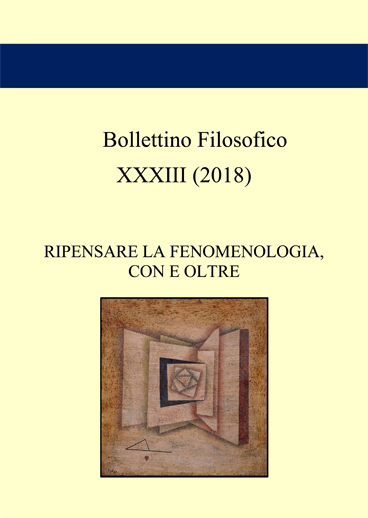Ritmo e durata fra Husserl e Bachelard
Abstract
Inside phenomenological research, the concepts of present time and instant are characterized by a troubled dialectic: for Husserl the present flows, widening both towards the past and the future, like the Heraclitean bowstring which stretches between two dimensions. Gaston Bachelard, on the contrary, is the thinker of discreteness, in which the temporal continuum is linked to the reciprocal differentiation of instants in duration. Therefore, the conceptions of time of these philosophers seem to be opposed to one another. However, within these two modalities of scansion, we meet a common thread, which underlies both interpretations and allows for their convergence on the perceptual content. We will focus, on the one hand, on the process through which the position acquires its shape within Bachelard’s La dialectique de la durée (1936), and, on the other hand, on Husserl’s treatment of the way in which one aspect of the thing emerges above the others in his writings on attention (1904-1905).
Downloads
Bollettino Filosofico pubblica in internet, ad accesso aperto, con licenza:
|
|
CCPL Creative Commons Attribution |
L'autore conserva il copyright sul suo contributo, consentendo tuttavia a chiunque "di riprodurre, distribuire, comunicare al pubblico, esporre in pubblico, rappresentare, eseguire e recitare l'opera", purché siano correttamente citati l'autore e il titolo della rivista. L’autore, al momento della proposta di pubblicazione, è inoltre tenuto a dichiarare che il contenuto e l’organizzazione dell’opera è originale e non compromette in alcun modo i diritti di terzi, né gli obblighi connessi alla salvaguardia di diritti morali ed economici di altri autori o di altri aventi diritto, sia per testi, immagini, foto, tabelle, sia per altre parti di cui il contributo può essere composto. L’autore dichiara altresì di essere a conoscenza delle sanzioni previste dal codice penale e dalle leggi speciali per l’ipotesi di falsità in atti ed uso di atti falsi, e che pertanto Bollettino Filosofico è esente da qualsiasi responsabilità di qualsivoglia natura, civile, amministrativa o penale, e sarà dall'autore tenuta indenne da qualsiasi richiesta o rivendicazione da parte di terzi.
